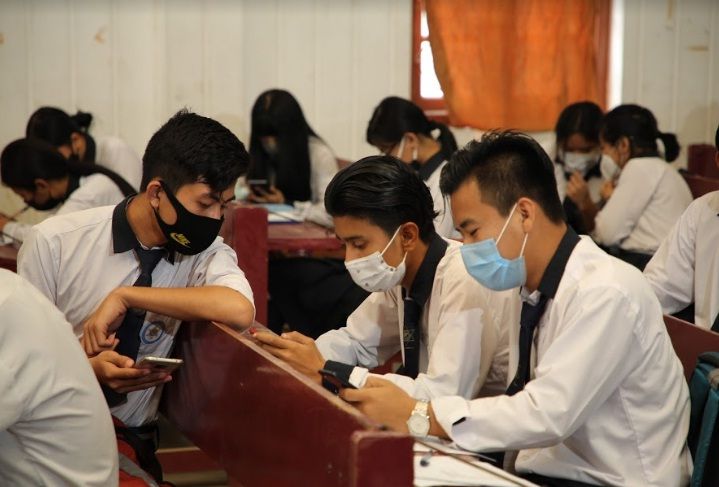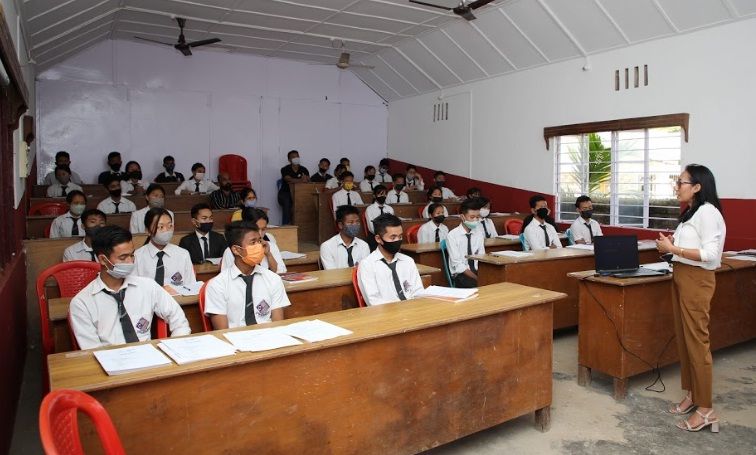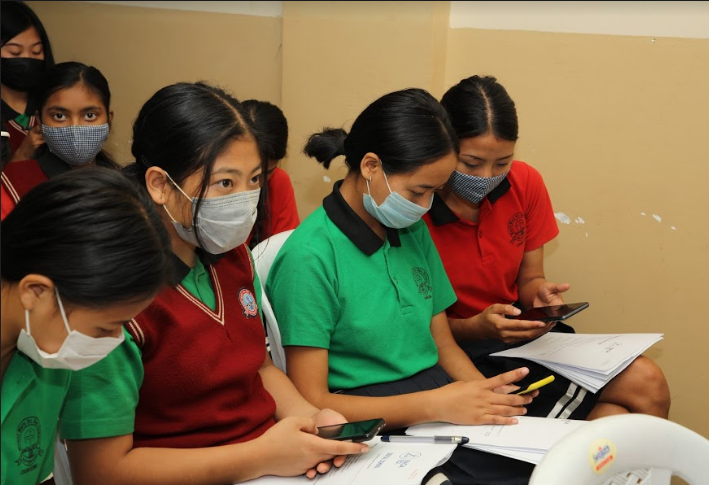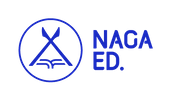

Click here to find the full story here
NagaEd is an education technology provider of learning and teaching solutions for students, teachers and institutions seeking a digitally enabled educational experience. With a mission to empower the next generation of Nagas “to shape our evolution as a people and society while respecting the traditional communitarian ethos of our forebears”, NagaEd envisions in creating a learning society where all Nagas are provided equal opportunity to access quality education resources.

In an exclusive interview with The Morung Express, Founders Shiroi Lily Shaiza and Kevisato Sanyü discusses on the gaps and challenges in the Naga society and its education system, and designing a digital education delivery model accessible to all students in Nagaland.
Kevisato Sanyü, Founder, Executive leads the development of strategies, policies, and processes across all business functions at NagaEd. Currently working at RMIT University as the Academic Evaluation Specialist, Sanyü is the Founder of three ventures that focus on uplifting and building capabilities within the Naga community, with NagaEd being the most recent company.

Shiroi Lily Shaiza, Co-founder, leads the partnerships and engagement team at NagaEd. Shaiza is an Acumen Fellow India, 2017 and Forbes 30u30 India, special mention for Social Impact in 2018.Shiroi enjoys co-creating social ventures and joined Wander Nagaland, a responsible travel Company in Nagaland as a co-founder leading partnership and engagements.
She is also a Founder at EMERGE, Singapore (Ecosystem for Meaningful, Equitable, Resilient & Growth Enterprise) an early stage social start up supported by the National University of Singapore to Scale social enterprise solutions.

MExN: Why and how did NagaEd begin?
Shaiza: As the realities of COVID-19 and its impact in Nagaland and on the world set in, we were distraught to see hundreds of thousands of students, including our own nieces and nephews, unable to continue their education during the COVID-19 lockdown.
We spoke to teachers and educators from 22 different institutions to identify the challenges the sector was facing and articulate problems that lay ahead. Here, we found an opportunity to contribute to the solution by setting up NagaEd, a digital platform that provides free quality education resources for students and uplifts the capabilities of teachers and educators in Nagaland.
While looking at the challenges, we saw a lot of opportunities as well. We found that though it was a really difficult time for many during the pandemic, we could design something that would be able to provide quality educational resources. We saw it as an opportunity to intervene.
Sanyü: Through the survey we found that there is a really big challenge here. Over 350,000 students are facing interrupted education with many of them having really big challenges to continue their education which includes behavioural barriers, people’s approach and adoption to digital education. The core of it was a lot to do with infrastructure and access to internet, and access to devices. It is also to do with access to quality education resources.
When we thought about these challenges, what we did was -we took these challenges and scanned the education environment in different places like Australia and America and had a look at what solution are being provided to resolve some of the issues. That is how it began and developing our model around NagaEd and started circulating what we wanted to deliver.

MExN: How do you find the present education scenario in Nagaland? What are the challenges in the education system that needs to be addressed?
Sanyü: We have a lot of resources out here. We have individual schools and institutions providing great resources to their students. We also have the department working really hard in providing videos, online lessons that students can access. But something that we saw and something that was missing was a complete package- something that was standard and centralised that could be delivered to all students no matter where they reside. That’s a challenge we took.
Although we have a higher literacy rate, we still have the highest rate of youth unemployment in the country. That was one of our main motivating factors. We are going through a massive time of disruption and change at the moment with the COVID 19 pandemic which has really brought to surface some of the challenges in the existing education system.
At a very high level, we had our own Naga traditional education system that focused on (1) Skills and vocational education-what are the practical skills that you need to be ready for life in the village. That was a very strong pillar as a part of the Morung Education, and (2) Lessons for living- How does one become a good citizen of the village and community and how does one become a contributing member of the family. We really saw that these two pillars made up the Naga traditional education.
However, when the British arrived, they introduced a new system of education that was overlaid into our traditional system. The whole education system was re-engineered to optimize what was important in the British system. It was academically focused and even more so in the Indian system, it optimised essentially into a single output – what is your mark when you leave school, which becomes the most important thing when you leave school above and beyond anything.
What we find is that it crowds out all the space. There is no more space for vocational education system, no space for being ready for life and work. No more space for lessons for living, and no more space to talk about how do we make/become good citizens of our village or global village, or how do we become contributing members of our family.
MExN: You’ve mentioned about designing a digital education delivery model to provide students with quality educational resources. What is its relevance for a State like Nagaland where it still grapples with a wide digital divide?
Sanyü: We have a very big digital divide, so there is key information, communication technology issues, key infrastructures that the students and education system as a whole face in Nagaland.
We are developing a four tiered delivery model. This means that the centralised content that we’re creating can be delivered to whoever needs them where ever they maybe.
1. Online content: The first tier of the delivery model is an online learning management system. All of the curriculum content and syllabus is digitised, put online and curated so that students can access quality content through online.
2. Downloadable content: In Nagaland, we face particular challenges where the vast majority cannot access online reliably or cannot access at all. In the second tier of the model, we put all the digitised context in a downloaded format as in EPUB (electronic publication) file. No matter what electronic device you have, one can read it as a digital book on any device.
3. Offline content: We realise that some students may not be able to download to look at it offline. In those cases, we’ve digitised it in USB that can be delivered to different schools and institutions so that they can get all those documents/contents they can access through USB devices.
4. Digitised content printed in booklet: Large parts of Nagaland students don’t have devices and for many, it’s all useless. In the four tiered model, all the digitised content is printable in booklets that can be delivered to schools where students can pick them up. This is the kind of our four tiered delivery model that we hope can provide access to quality learning and educational resources to as many students in Nagaland as possible.
Shaiza: A big part of our solution is on handholding and building the capacity of the teachers because we understand that a lot of pressure is on the teachers and institutions to get on to digital education. What we want to do is make it really simple for people to understand digital education. One way is to have all the resources in one stop shop so that it is an easy way for students to navigate through. We want to make the solution accessible to everyone and make it free for all.
MExN: What is the response so far, on the survey you are conducting and what are the concerns being raised?
Shaiza: On January 10, in partnership with the State Directorate of School Education (DoSE), NagaEd launched the Digital Education Experience Survey.
We sought to capture the voices of students and parents and their experiences with digital education over the lockdown.
With overwhelming support from young social media influencers and media outlets, we were able to capture over 1000 voices speaking on the issue.
Despite the challenges, many students and parents faced adapting to digital education, one thing became clear: most students want to continue with digital classes post-pandemic. Preliminary responses show that over 55% of students wished to continue with blended learning, a mixture of online and offline classes, post-pandemic. This enthusiasm for digital education encourages us to advance on our mission.
MExN: What is NagaEd’s vision for the education system in Nagaland?
Sanyü: Our vision is to really work at resolving issues our community faces, to change some of the attitude and behaviour within our community and the way we treat ourselves and interact with each other.
We really want to create an empowered society who is here to build a better world for us and the next generation. The way that we can see that happening is by providing access to quality education to all and really realising that vision for education as emancipation for all. That is where we want to head.
NagaEd is a leading digital education company that provides learning and teaching solutions for students, teachers and institutions through modern and digitally enabled educational experience. We create a learning society where all Nagas are provided equal opportunity to access quality education resources.
